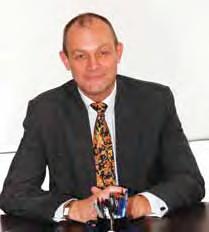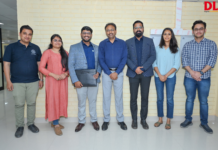 We are in a world that needs education to be changed so that it responds in a way that provides what the world needs, opines Mark Parkinson, Executive Director and Head of School, Kunskapsskolan Eduventures, Gurgaon
We are in a world that needs education to be changed so that it responds in a way that provides what the world needs, opines Mark Parkinson, Executive Director and Head of School, Kunskapsskolan Eduventures, Gurgaon
Please tell us about the inception of Kunskapsskolan Schools.
The first Kunskapsskolan School was opened in Sweden in the year 2000. The concept was developed around the year 1998. In the span of about 12 years, we have graduated to about 37 schools in Sweden, three schools in the UK (on public- private partnership with the UK Government), and one in New York that was opened last year. We have seena a rapid growth. We have now opened the first one in India and will open more institutions.
Shri Ram Schools has about 4,300 students. The organisation is strong and disciplined in its set-ups, so it will continue to grow.
According to you, what challenges confront the education systems?
One of the challenges is the more success you have, the more hard real dynamic innovation gets. You can only do incremental innovation, but there is a need to go further, not just in India, but everywhere.
We are in a world that needs education to change so that it provides what the world needs. There are purists who say that education should have higher purposes like pure learning and learning for learning’s sake. But we have to be realistic. We are in a country, which is at a critical development stage, which is either a massive resource or massive threat for tomorrow depending on how it is developed. We are in a situation where people are willing to do whatever it takes to get a better life for themselves and for their children.
Today, even in the most established schools, we do not get learning for learning’s sake. We only get factoryprocessed bodies of knowledge with little relevance to careers and life.
“Today, even in the most established schools, we only get factory-processed bodies of knowledge with little relevance to careers and life”
What, in your opinion, is the need of the hour for the education system?
Back in the year 2000, when we started to come out of the economic debt, people from different industries said that within three months after the debt, their speed of growth was restrained because they could not find talent. We have heard stories about only 25 percent of the engineering graduates being employable, but the figures are even worse than that. Our education system does not have money and assets to waste. It has the responsibility to meet the aspirational needs of parents and their children. We will all be looking at a very good tomorrow if the education system gets it right. But if it gets it wrong, we could be looking at a very horrible tomorrow that is far worse than today. In worst scenarios, it has industrial, economic, social and political implications.
How is the Kunskapsskolan model different?
The Kunskapsskolan model breaks away from the industrialised one size fits all approach. Our students will not have textbooks. There will be a cloud-based learning hub, and a separate curriculum team looking after the quality of material in the hub. For the 30 or more hours a teacher spends in the school per week, she may spend only 50 percent of the time face to- face with the students. For the rest of the time, she is involved in other things. In our model, the teacher does not need to do that. Instead, she can feed her creative ideas into the pool and the people in-charge of the curriculum will use them to refine the curriculum. In this way, the teachers can spend about 50 percent more of their time with the children.





















